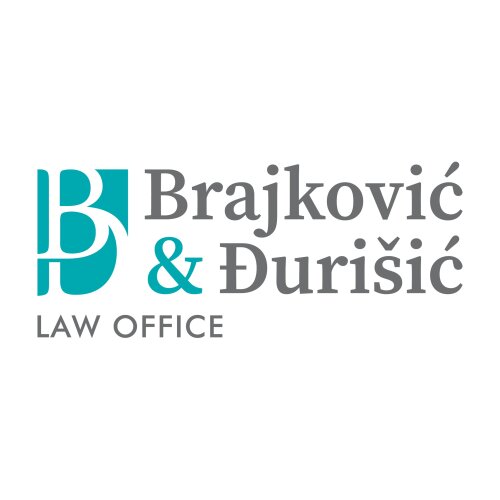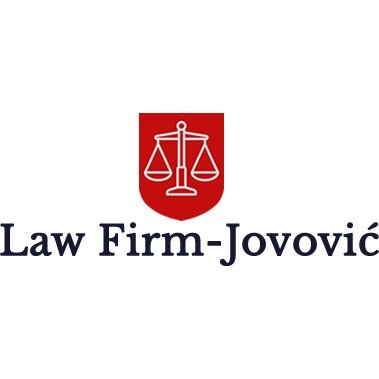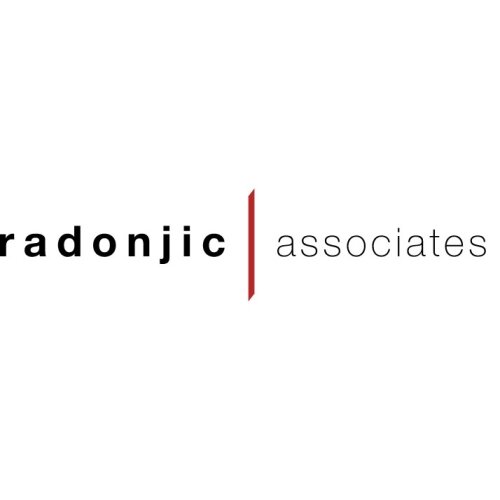Best Restructuring & Insolvency Lawyers in Montenegro
Share your needs with us, get contacted by law firms.
Free. Takes 2 min.
Or refine your search by selecting a city:
List of the best lawyers in Montenegro
About Restructuring & Insolvency Law in Montenegro
Restructuring and insolvency law in Montenegro governs the processes available to businesses and individuals facing financial distress or insolvency. The legal framework provides different mechanisms for managing and overcoming financial difficulties, either by restructuring debts and operations to restore viability or by facilitating an orderly liquidation if recovery is not possible. The goal is to balance the interests of creditors, debtors, and other stakeholders, while supporting economic stability.
Why You May Need a Lawyer
In Montenegro, restructuring and insolvency proceedings can be complex and have significant legal and financial implications. You may need a lawyer in situations such as:
- When your business is unable to meet its financial obligations and needs to negotiate with creditors
- If you face legal actions from creditors, such as lawsuits or asset seizures
- If you need to initiate formal insolvency, bankruptcy, or liquidation proceedings
- When you want to restructure your company to avoid insolvency
- If you are a creditor seeking to recover debts from an insolvent party
- To ensure compliance with local laws and avoid personal liability for management or directors
- If your assets have been frozen or are at risk due to pending insolvency
- When considering out-of-court settlements or debt restructuring agreements
- To understand the rights and obligations of all parties involved in insolvency proceedings
A specialized lawyer can guide you through these processes, help protect your interests, and assist in achieving the best possible outcome.
Local Laws Overview
Montenegrin restructuring and insolvency law is primarily regulated by the Law on Bankruptcy and the Law on Voluntary Financial Restructuring, among others. The main legal processes include:
- Bankruptcy Proceedings: Initiated when a debtor is unable to pay debts as they come due. Bankruptcy leads either to the liquidation of the debtor's assets or to financial restructuring if possible.
- Pre-bankruptcy/Voluntary Restructuring: Allows debtors and creditors to negotiate new repayment terms, reduce debts, or reorganize the company to avoid bankruptcy.
- Liquidation: If a company cannot be restructured, assets are sold and proceeds are distributed among creditors according to statutory priorities.
- Debtor Initiation: In Montenegro, debtors must file for bankruptcy as soon as insolvency is identified, and delays can result in director or management liability.
- Creditor Rights: Creditors can initiate bankruptcy proceedings and participate in creditor committees. Secured creditors have priority in claim payments from asset sales.
The court plays a central role in overseeing bankruptcy and restructuring processes. Certain professionals, such as licensed insolvency administrators, are involved in managing proceedings.
Frequently Asked Questions
What is the difference between restructuring and insolvency?
Restructuring refers to reorganising a company’s debts and operations to restore financial health and avoid insolvency. Insolvency means a debtor cannot pay debts as they become due and may result in bankruptcy or liquidation.
Who can file for bankruptcy in Montenegro?
Both companies and individuals can file for bankruptcy. Creditors can also initiate bankruptcy proceedings against a debtor if certain conditions are met.
What is voluntary financial restructuring and how does it work?
Voluntary financial restructuring is a process where the debtor and creditors agree on new payment terms, debt reductions, or operational changes without initiating formal bankruptcy. This process aims to help viable businesses avoid insolvency.
How long does bankruptcy proceedings typically take?
Bankruptcy proceedings can take several months to a few years, depending on the complexity of the case, number of creditors, and the nature of the debtor’s assets.
What happens to employees during a bankruptcy?
Employees have certain protections and are recognized as priority creditors. Wages and other employment-related claims are generally paid before other unsecured debts.
Can a company continue to operate during insolvency or restructuring?
Yes, under certain forms of restructuring, the company can continue to operate to generate value and maximize repayment to creditors. The court or insolvency administrator may oversee operations.
What are the consequences for directors in case of wrongful trading or delayed filing for bankruptcy?
Directors may be held personally liable for damages to creditors if they fail to initiate insolvency proceedings in a timely manner, or if they engage in wrongful or fraudulent trading.
How are assets distributed among creditors?
Assets are distributed according to a legally defined order of priority. Secured creditors are paid first, followed by employees, tax authorities, unsecured creditors, and shareholders.
Can foreign creditors participate in Montenegrin insolvency proceedings?
Yes, foreign creditors have the same rights as local creditors in Montenegro and can participate in proceedings to recover debts.
Is it possible to challenge or appeal bankruptcy decisions?
Yes, parties involved can file objections or appeals against decisions made during bankruptcy proceedings, subject to specific legal deadlines and procedures.
Additional Resources
If you need more information or support, consider reaching out to the following resources:
- Montenegrin Commercial Courts: These courts handle insolvency and bankruptcy cases and provide official guidance on procedures.
- Ministry of Justice of Montenegro: Offers information on relevant laws and legal rights.
- Chamber of Economy of Montenegro: Provides business support, including legal resources related to restructuring and insolvency.
- Licensed Insolvency Administrators: Professionals authorized to manage insolvency proceedings.
- Local Bar Associations: Can help you find lawyers specializing in restructuring and insolvency.
Next Steps
If you or your business face financial distress in Montenegro, early action is crucial. Consider the following steps:
- Gather all relevant financial documents, such as balance sheets, income statements, and lists of creditors.
- Seek prompt legal advice from a lawyer experienced in restructuring and insolvency matters.
- Discuss your situation openly with your lawyer to explore all available options, such as restructuring, out-of-court settlements, or initiating formal insolvency proceedings.
- Follow your lawyer's advice for communicating with creditors and authorities to protect your legal and financial interests.
- If you are a creditor, consult legal counsel to ensure your rights are protected and to participate appropriately in insolvency proceedings.
Taking timely legal and professional guidance increases your chances of finding a solution and minimizing potential losses.
Lawzana helps you find the best lawyers and law firms in Montenegro through a curated and pre-screened list of qualified legal professionals. Our platform offers rankings and detailed profiles of attorneys and law firms, allowing you to compare based on practice areas, including Restructuring & Insolvency, experience, and client feedback.
Each profile includes a description of the firm's areas of practice, client reviews, team members and partners, year of establishment, spoken languages, office locations, contact information, social media presence, and any published articles or resources. Most firms on our platform speak English and are experienced in both local and international legal matters.
Get a quote from top-rated law firms in Montenegro — quickly, securely, and without unnecessary hassle.
Disclaimer:
The information provided on this page is for general informational purposes only and does not constitute legal advice. While we strive to ensure the accuracy and relevance of the content, legal information may change over time, and interpretations of the law can vary. You should always consult with a qualified legal professional for advice specific to your situation.
We disclaim all liability for actions taken or not taken based on the content of this page. If you believe any information is incorrect or outdated, please contact us, and we will review and update it where appropriate.
Browse restructuring & insolvency law firms by city in Montenegro
Refine your search by selecting a city.
















